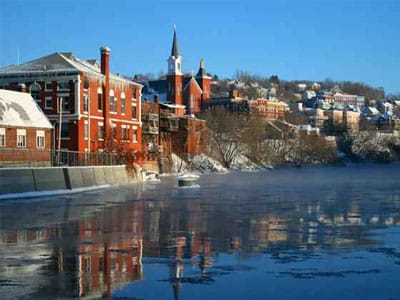
The Air Quality in New Hampshire
Known for its natural beauty, New Hampshire features rugged mountains, clear blue lakes, sandy lake, and ocean beaches. All of these features are packed into one of the smallest of the 50 states. New Hampshire ranks 46th in terms of size. Contained within the Appalachian Highlands, the three primary geological features and landforms of New Hampshire are the Coastal Lowlands, the Eastern New England Upland, and the White Mountain Region. New Hampshire experiences a humid continental climate with warm, humid summers, cold, wet winters, and uniform precipitation all year.
As for the air quality, we all know that levels of pollutants rise over the years and that exposure to polluted air has been linked to a variety of health complications. High levels of pollution are especially dangerous for children, persons with breathing and heart disorders and the elderly. People who are sensitive are advised to avoid strenuous outdoor activity once the Air Quality Index (AQI) rises above 101 (orange).
When it comes to air quality in New Hampshire, the results these days are in a green zone so you shouldn’t be worried. Green zone actually means that the air quality is realy good. If you wonder what other air quality descriptor means, please check the table below.
Regardless that air quality of the New Hampshire air is good. The commonly known fact is that the inside air is often much more worst than the outside air. The health risks that compromised indoor air quality can pose are great. If you’re concerned that your health may be at risk, you’ll want to know the tips on how to improve it.
1. Open your windows more frequently
2. Invest in an air purifier
3. Change your filters
4. Regularly maintain your HVAC system

